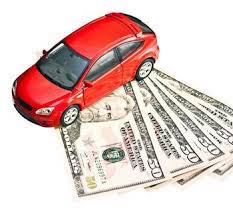Cutting Texas Car Insurance Costs
 The following information outlines Texas’ rating system. We offer tips on cutting Texas car insurance costs and we describe how your driving record affects your premium.
The following information outlines Texas’ rating system. We offer tips on cutting Texas car insurance costs and we describe how your driving record affects your premium.
What are County Mutual Companies?
Most county mutuals specialize in high-risk drivers and generally charge more than other companies. Check your auto insurance policy’s Declarations page for the words county mutual. If you and your covered family members have good driving records, you probably don’t belong in a county mutual and should shop for insurance coverage with a standard or preferred company that offers lower rates.
What are standard and preferred companies?
A preferred company usually offers the lowest rates.
A standard company’s rates are somewhat higher than a preferred company’s.
A high-risk company sells at high rates to drivers with poor driving records or other problems. In Texas, high-risk companies are likely to be a county mutual.
Many insurers actually are groups of companies. An insurance group might consist of a preferred company, a standard company and a county mutual.
What factors affect my premium?
When a company applies their rates to your particular situation as a driver, the resulting total is your premium. Several factors determine the premium you are quoted or ultimately charged:
- Your age and, for younger drivers, your marital status. Unmarried male drivers under 21 pay the highest rates. Also, single men between 21 and 25 and unmarried women under 21, will pay higher rates. On the other hand, drivers over 50 may get discounts from some companies.
- The county and zip code where you keep your auto. Texas is divided into 52 rating territories. Urban counties usually have more accidents and auto thefts, therefore they usually have higher rates than rural areas.
- Your auto. Collision and comprehensive rates are highest for luxury cars, high-performance cars and sports cars. Rates also reflect the fact that some cars damage more easily or cost more to repair than others. On older, paid-for, lower-value cars, you should consider dropping collision insurance. An insurer will not pay for repairs that cost more than the car’s value. When repair costs exceed the car’s market value, the insurer will total the car and send you a check for its market value.
- How you use your auto. Rates are higher for autos driven to work or used in business than for cars used only for errands and pleasure trips.
- Your deductibles, if you have collision and comprehensive, are your out-of-pocket share of the cost of a claim. You can reduce your premium by raising your deductibles.
- Surcharges. Penalties are added for accidents and certain traffic violations.
- Discounts. Some are required by the state, others are optional. Ask your agent.
- Credit Scores. Some companies also use credit scores.
- Other Factors. These are among the top factors used to determine rates, but other factors may be considered as well.
How can I check out a company or agent?
A low rate is no bargain if you buy from a fraudulent company or agent. To find information on auto insurance companies in Texas, call the Texas Department of Insurance (TDI) at:
1-800-578-4677 in Austin, (512)463-6169.
The Texas Department of Insurance can tell you whether an agent or company is authorized to sell auto insurance in Texas. They can also tell you a company’s complaint record and its letter grade from a national financial rating service.
How does my driving record affect my premium?
- A good driving record can save you money. Preferred companies, which usually charge the lowest rates, accept only applicants with good driving records.
- A good driving record can get you a discount from some companies when you renew your policy. Ask your agent.
- Tickets and accidents can mean higher premiums if companies classify you as “high-risk.” You could end up in a county mutual or the Texas Automobile Insurance Plan Association (TAIPA), also known as the assigned risk plan. TAIPA provides basic liability coverages for drivers rejected by at least two insurance companies. Motorists in the TAIPA pay higher surcharges and higher rates than other drivers, but sometimes less than drivers insured by county mutuals.
- Accidents or major driving offenses can add surcharges to your premium. Surcharges are mandatory and stay on your premium for three years.
Austin Insurance Group | Local Texas Auto Insurance Agent | 512-339-2901 | Cutting Texas Car Insurance Costs
